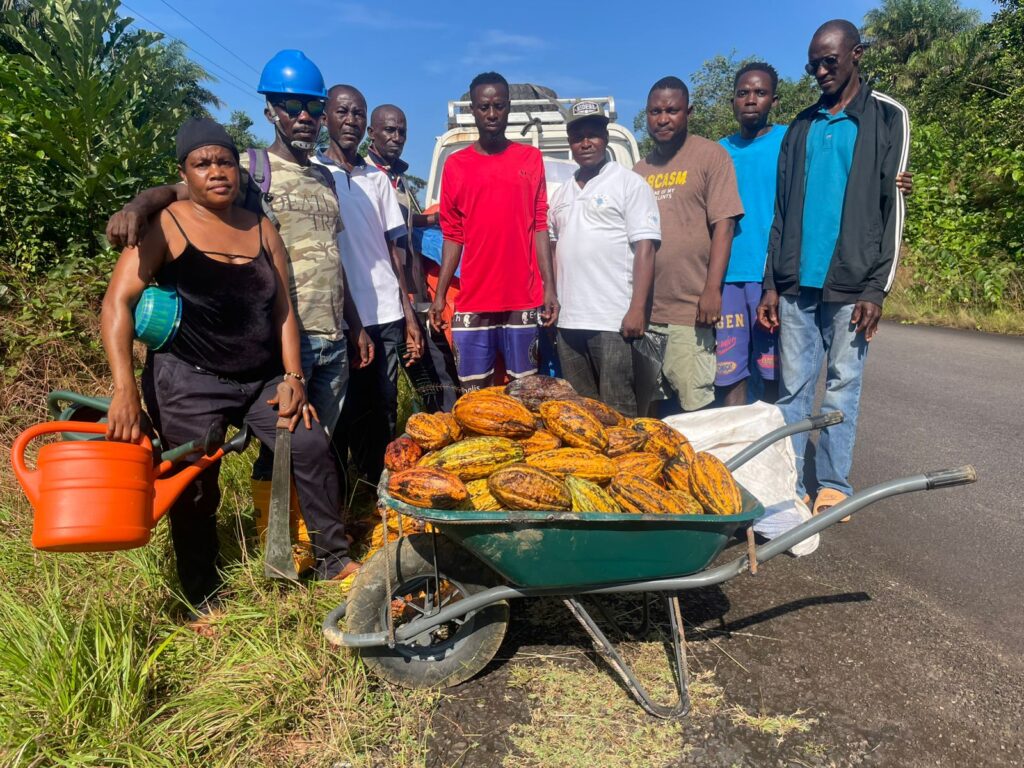
This pilot project has not only restored hope in Varguaye and Benduma but has also inspired the communities to invest more time and effort into lowland rice farming. According to Mr. Manah Jallah, the Town Chief of Varguaye, this is the first time in nine years that they have seen rice grow in their community. The skills and techniques taught by the project have empowered the farmers, and they are now eager to expand their production to feed not only their communities but also neighboring towns and villages.
The success of this project demonstrates the power of community-based initiatives and the importance of adapting farming practices to coexist with wildlife. The collaboration and support of the FDA, SCNL, CHAP, UNDP, and the Swedish Embassy have been crucial in making this transformation possible. The communities of Varguaye and Benduma now stand as beacons of hope, showing that even in the face of significant challenges, innovative solutions and perseverance can lead to sustainable success hereafter.
This story of Varguaye and Benduma is a powerful example of resilience and adaptation in the face of human-wildlife conflict. For nine years, these communities, located in Grand Cape Mount County, Liberia, struggled to farm due to forest elephants destroying their rice crops. The traditional farming method, which involved cutting down trees and burning the land before planting, was no match for the elephants. This led to years of starvation and despair.
Varguaye, situated in Manner Clan, Gola Koneeh District, and Benduma, 7 miles away in Kposo Clan, Porkpa District, are both surrounded by forests that are home to a significant population of forest elephants. The rich biodiversity of these areas made them focal points for the UNDP-Community Based Forestry Management (CBFM) project, funded by the Swedish Embassy. This project aims to conserve the elephants and their habitats through community involvement and sustainable practices.
The turning point came when the CBFM project introduced a new approach by working with 140 farmers from both communities to switch to lowland rice farming. Initially, there was skepticism due to their past failures, but the results were astonishing. Rice planted on 5 hectares of lowland grew exceptionally well, and for the first time in almost a decade, the communities saw their rice ready for harvest within just three months.
One of the most remarkable aspects of this success is that the elephants, which had been the primary cause of their farming failures, avoided the lowland areas. The elephants’ fear of getting stuck in the mud allowed the rice to thrive without disturbance.
Mr. Senesee Borbor, the Town Chief of Benduma, echoed this sentiment, stating, “The project has given us the skills needed to expand further even if the project were to end today. Our first harvest was around 15 bags of 25kg, but we are requesting 75 empty bags to fill after harvesting. There is a saying in Liberia, the dried dog is sweet but what will you eat before the dog gets dried, which means if you tell some to conserve there must be some alternative livelihood and this project is helping us as we also ask for more support in the form of rich email and water pump machine that will help us produce throughout the year”


